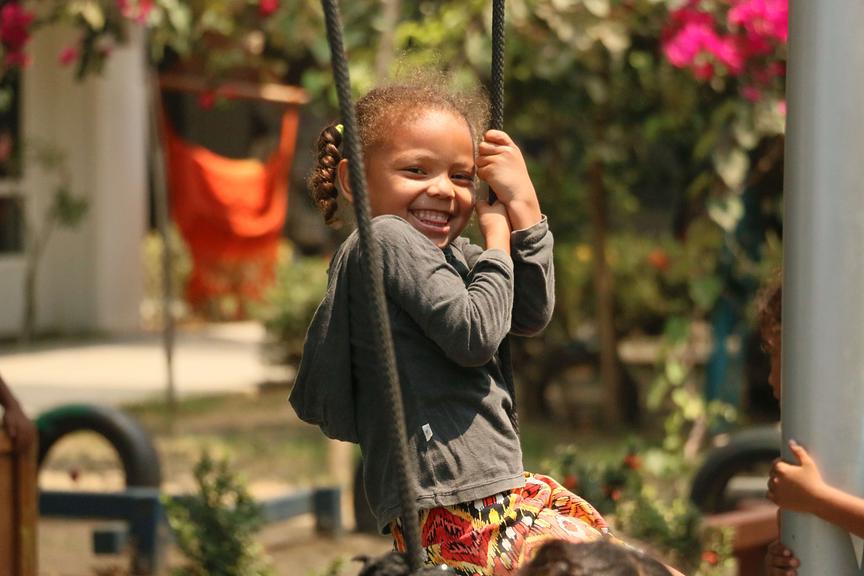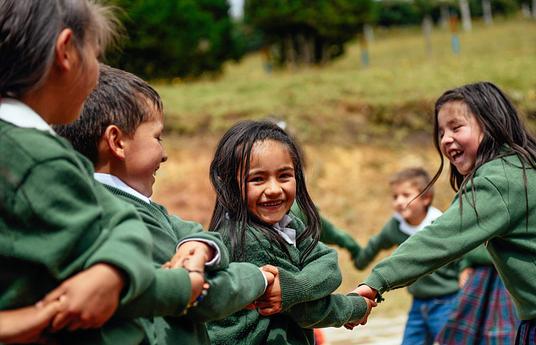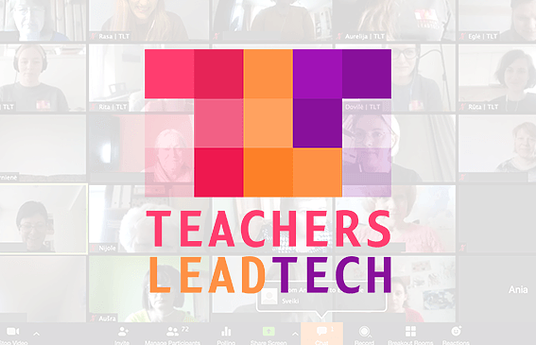The problem
In Colombia 50% of children under five do not receive comprehensive quality care. Therefore, they do not develop the necessary skills to change the course of their lives.
What we do?
aeioTU provides high quality Early Childhood Development (ECD) services at aeioTU centers and accompanies other ECD centers and educators to improve their knowledge and experience. Furthermore, we mobilize multisectoral groups to diagnose and prioritize strategies for ECD.
Why we do it?
We want to increase quality in ECD services in Colombia, promoting new generations with better development and social commitment, and thus transforming our communities through the empowerment of its children.

We do it ourselves
- We operate 22 early childhood educational centers in 12 cities and municipalities from Colombia.
- Our Educational Experience promotes children development
- Our children are competent, creative, constructive citizens of society.
- Our educational centers adapt to their context in rural and urban areas, with diverse infrastructuresand in different operations, such as aeioTU at home or the center-based program
We have two types of aeioTU centers:
1. Social impact centers
Our inspiration
The aeioTU Educational Experience is characterized by the accompanying of the children in order to find the meaning of life in a natural and joyful manner. aeioTU is inspired on Reggio Emilia, an education philosophy that considers the child as the active main character of his/her own learning. The Reggio Emilia philosophy is recommended by the European Union and the University of Harvard and is recognized by UNESCO as the best pedagogy in the world for early childhood.
Our commitment is to develop the full potential of every child. We believe in our children. We take care and educate them in spaces especially designed by us to maximize their learning. Based on our experience and knowledge, we developed a curriculum cartography that empowers the teacher with pedagogical instruments designed to potentiate the learning of each child. This curriculum has been nominated to theWISE award that recognizes innovative projects that can generate a great impact in global education.
We see the educational philosophy of Reggio Emilia as an inspiration and not as a model to copy. We recognize the particularities of our context, our communities and their diversity of ideologies, cultures, religions and idiosyncrasies; updating the concepts and translating them in accordance with our country´s peculiarities.
Children as protagonists of their growth processes: they are seen as unique, strong beings, with their own identity, full of rights and potential; valuable members of the community, builders of knowledge, wanting to explore the world through their senses and perceptions, using creativity and curiosity as tools and vehicles of possibilities and experiences.
Environment, spaces and relationships: the organization and design of the environment within the centers have a very important role as they are arranged in a way that enables and invites exploration, play, amazement and research. They are modified to take shape as the projects or learning processes are configured, providing new meaning and value to them.
The hundred languages of children: the diversity of languages and codes used by children to express what they feel, perceive and think is valued. It is in this way, in the constant comings and goings in which verbal and non-verbal languages intersect, they make infinite connections demonstrating their extraordinary potential.
The educational documentation: it is the means by which the learning and the construction of the knowledge that are developed in the classrooms and in each one of the spaces are made visible; it is the systematization of the advances, anecdotes and achievements of children.
Educational research: is seen as an active factor of learning and an essential element in the daily experiences of children and adults, allowing them to better understand processes and make knowledge more complex by becoming visible through documentation.
Listening: enables permanent dialogues between children, adults and the environment. Listening favors reflection and sensitivity.
Participation: means in which all members of the educational project interact, allowing them to recognize and value the particularities of everyone in the midst of diversity and multiculturalism; essential elements for the construction of a sense of community and democracy.
The organization: refers to the shared responsibilities -from the pedagogical to the administrative- guaranteing the stability of the children, the service offered and the evidence of the educational project of Reggio Emilia.
Vocational training: aimed at educators as facilitators of learning and sociocultural mediators. Moving forward in vocational training allows us to construct new meanings for education. In addition, it promotes reflection and the generation of deep processes of analysis on its praxis.
Progettazione (design): this principle has to do with the design or strategy of union and interrelation of children's interests, the stimuli provided by the environment and materials, concepts, theories and hypotheses, ideas and questions that arise from said cross-linking. These become the means that enables thought, accepting error as learning, uncertainty and doubt that allows constant evolution.
Evaluation: relates to the continuous reflection of processes, children´s learning, professional development, organization, educational research and service quality . It helps to analyze each element, reconfigure it, transform it, return to it and create new ways and ways of doing.
Learning as a process of subjective and group construction: from the relationships with the environment, peers and adults, children build meanings, concepts and realities that allow them to understand the world around them.
Recent update:
On May 4th we have launch our digital strategy Aprendiendo, which is a free digital platform created by aeioTU with the objective of sharing its pedagogical model know how on experience through an array of digital content.Link: https://aprendiendo.aeiotu.com/



